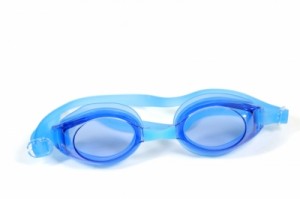Calories Burned Swimming 
Swimming is widely known as one of the best ways of exercising. The impact and strain on the body is low whilst calories burned swimming can be high. It will help you lose weight and tone you up at the same time! Vigorous swimming can also burn calories fast. You can swim at a competitive level or take a leisurely swim. The pace is flexible to your needs which is why swimming is such a great and popular form of exercise for all ages. You decide how much you want to achieve with swimming and set your own pace.
Many swimming pools now offer swimming with aerobics, known as aqua-aerobics, to help lose weight. This is similar to aerobics but without the impact factor as the water cushions your body.
However bad technique can result in injury so ensure that you know how to execute swimming strokes correctly.
How many calories will I burn while swimming?
Click for the calculator for calories burned swimming for a more specific guide to specific calories used swimming. As an average guide 30 minutes swimming at the following paces pace will use:
Recreational swimming: 90-220kcal
Moderate swimming: 150-370kcal
Vigorous swimming: 220-550kcal
The type of swimming stroke affects how many calories burned swimming as well. Click on the links below to find out more about calories burned doing particular swimming strokes.
- Breaststroke
- Freestyle
- Backstroke
- Butterfly
Use the calorie calculator for calories burned swimming
Swimming and weight loss
Swimming burns calories so will help speed up weight loss. To use swimming for weight loss is highly effective due to the cardiovascular health benefits of swimming.
Swimming also uses many different muscles and as a result the heart and lungs need to work extra hard to supply your muscles with oxygen. Swimming therefore gives your cardiovascular system a superb workout. Due to the cardio workout and exercise that makes you out of breath, calories are being burnt fast while swimming.
As you build up your ability to swim longer distances and periods of time you will build muscle which in turn burns more fat. So in addition to the calories burned swimming, you will burn more calories per similar swimming sessions as your swimming improves. You will also burn an increased amount of calories after finishing exercising as your body uses energy to recover and rebuild muscle tissue.
Regular swimming when losing weight or following a diet plan will improve health and may reduce risks of chronic illnesses. The NHS choices website offers more information.
Can swimming improve your figure and muscle tone?
Swimming is known to be one of the best all round aerobic exercises because it works all the major muscle groups so targets every area of your body. Given that swimming is a resistance exercise usng most of the major muscle groups a knock on effect is that these areas are toned up without the added stress non-aquatic exercises put on the body.
Will swimming improve strength?
Swimming is an excellent form of exercise for strength building. While swimming you are constantly undertaking resistance exercise as you are battling against the water to move your body forward. This makes it one of the best exercises for increasing strength especially strength in the upper body around the arms and shoulders.
As your heart and lungs get stronger you will be able to go for longer periods swimming before you get tired. This results in your resting heart rate decreasing and blood pressure getting lower.
Will swimming improve flexibility?
Different swimming strokes work different areas of the body and given the movement made while in the pool whilst turning or using arms above the head as in the case of backstroke swimming aids in improving flexibility of muscles and joints.
More health benefits of swimming
Swimming is one of the best forms of exercise you can do, in terms of weight loss benefits, heath benefits, strength improvements and flexibility.
- Athletes use swimming to help recover from injuries as it is low impact while still building superb muscular and cardiovascular endurance. So if you have had an accident and want to get back into exercising, taking up swimming is an ideal way to do that.
- Swimming is relaxing and therapeutic.
- Swimming can be a solitary exercise so if you like socialising in the water, join a water aerobics class. Or try water polo or take up synchronised swimming.
- Swimming is fun! If you don’t like swimming lengths, try treading or walking round the pool instead. All these things burns calories.
Advertisements
Useful links
Calories Burned
Alcohol calorie counter
Food calorie counter
Fast Food Calorie Counter
Home
Photo credits Image: FreeDigitalPhotos.net
What Diet: Calories Burned Swimming